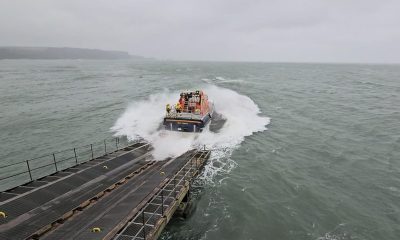News
Bovine TB: The case against culling badgers
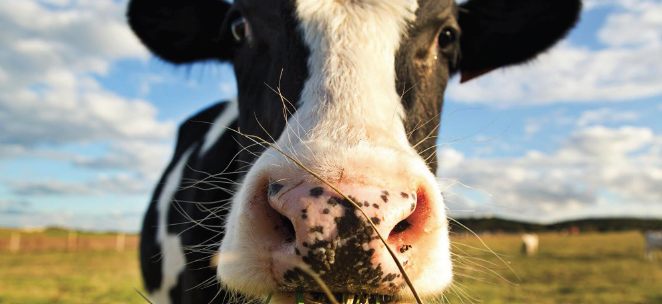
 IN RECENT weeks, The Herald has featured in-depth articles on Welsh Government policy towards bovine TB, its eradication and, inevitably, the role of badgers in the transmission and control of the disease.
IN RECENT weeks, The Herald has featured in-depth articles on Welsh Government policy towards bovine TB, its eradication and, inevitably, the role of badgers in the transmission and control of the disease.
On October 21, we reported that Cabinet Secretary for Rural Affairs Lesley Griffiths had announced a ‘consultation’ on proposals for tackling the problem that blights Welsh agriculture both economically and psychologically. The Welsh Government’s proposals for a new regional approach to bovine TB seemed to rule out the sort of badger cull that is taking place in England where, in September, the British Government extended the culling of badgers to seven new areas. The experience of a pilot programme in Northern Ireland was stated as an option to be considered in Wales, however. In that pilot, badgers were trapped in cages and infected animals were killed humanely. The proposed new approach in Wales follows a trial badger vaccination programme.
Global shortage of the vaccine meant that the programme was suspended at the end of 2015. Some critics condemned this as an administrative failure on the part of the Welsh Labour Government because it did not secure sufficient stocks of vaccine before commencing the trails. By contrast, a report by the Animal and Plant Health Agency for the Welsh Government was interpreted by the Badger Trust as heralding the trial’s success. The Badger Trust is a non-profit organisation working for the protection of the European badgers (Meles meles) that are indigenous to Britain.
The Welsh Government’s new approach will see low, intermediate and high TB areas designated across Wales. Designation will be based on the incidence of bovine TB in an area and thence define a specific approach to tackling the disease therein. The consultation encompasses measures to be applied to protect low TB areas and reduce disease in intermediate and high TB areas. In high TB areas, the government will ‘explore and develop ways to break the transmission cycle between cattle and badgers where it can be demonstrated badgers are contributing to the problem in chronic herd breakdowns’.
Lesley Griffiths’ announcement was given a general, if cautious, welcome. Shadow Cabinet Secretary for Energy, Climate Change and Rural Affairs Simon Thomas, Mid and West AM, acknowledged it as ‘a step forward’: “It is welcome that the link between the disease in wildlife and in cattle is being recognised and that measures are being taken to address the policy vacuum that has been in place. It needs to be ensured that the measures taken are targeted, effective and humane. Recognition that a regional approach is needed to tackle the problem is welcome.
“Instances of TB infection in cattle have stayed persistently high in West Wales and is increasing in new areas in Carmarthenshire.”
For the Farmers’ Union of Wales, its President Glyn Thomas concluded that the statement ‘didn’t go as far as we hoped it might and there is a lot of detail to be worked out’. Glyn Thomas sad the FUW would be consulting its members on the proposal.
WHY HASN’T VACCINATION BEEN HAILED A SUCCESS?
In the wake of Lesley Griffiths’ announcement, Sarah Reisz from the Dyfi Badger Group wrote to the Cabinet Secretary. Sarah Reisz expressed ‘concern and disappointment’, viewing the proposals as ‘a very retrograde step’. Commenting on the Test and Vaccinate or Remove (TVR) approach, she identified it as ‘a form of ‘reactive culling’ which aims to be more selective, and involve fewer numbers of badgers killed – and thus avoid perturbation’. The problems with such a policy were many, Sarah Reisz claimed: “Indications are that killing even very few individuals from badger social groups, may well cause perturbation.” Perturbation is a term given to changes in the behaviour of badgers when populations are culled. Research led by Jon Bielby and published in a leading academic journal 2014 found that: “Small-scale culling (such as TVR) changes badgers’ behaviour in ways that risk increasing TB transmission among badgers and exacerbating cattle TB incidence rather than reducing it.”
Acknowledging that Lesley Griffiths voted against badger culling in Wales in 2009, Sarah Reisz claims that the new proposals ‘renege on the Labour Government’s previously stated position that the science does not support culling of badgers in any form as a control measure for bovine TB’. She said: “Reneging on this is unfortunately typical of the kind of politics that has led to voter disenchantment and disengagement.” In her letter, Sarah Reisz asks the Cabinet Secretary how the ‘success’ or ‘failure’ of this policy will be measured. She claims that the incidence of TB in cattle, reported in The Herald as 0.4% for cattle in Wales, has ‘already declined significantly in Wales over the past four years, while vaccination of badgers has been taking place. Why, therefore, isn’t this policy being hailed as a success?’
It flies in the face of virtually all the scientific evidence, Sarah Reitz says, to keep blaming badgers for the spread of bovine TB: “The science shows repeatedly that the problem and the solutions come from cattle management, and that badger culling is a costly and unhelpful distraction. This [announcement] seriously impacts on the good name and kudos that Wales (and the Labour Party) has gained over the past few years by rejecting the discredited policy of culling in favour of vaccination. It has been shown repeatedly that culling a native wildlife species is not, and cannot be, the answer to a problem caused by our own practises, and has always had detrimental consequences for our ecology. It is morally and ecologically wrong.
“Wales has already suffered a particularly catastrophic decline in wildlife species. How can we honestly talk about ‘conservation for our children and grandchildren’ while sanctioning and encouraging a dynamic of wildlife killing?”
OUTSTANDING QUESTIONS
In Northern Ireland, the system of trapping badgers in cages and ‘humanely’ killing infected animals is a so-called TVR approach. The Republic of Ireland has been culling badgers for more than 30 years, reportedly killing over 60,000. The result is that badgers are effectively extinct over around one-third of the land area and badger populations may never recover. The Irish government started a four year vaccination programme in 2014, which will be reviewed in 2017, as they look to phase out culling. Although there has been some reduction in the incidence of bovine TB in the Republic of Ireland, it is impossible to attribute this to a single factor. The number of cattle herds has decreased significantly over the last 30 years, mainly for economic reasons. Meanwhile, similar trends in the declining incidence of bovine TB incidence have been identified in NI, which has not practised badger culling.
For readers who may be wondering why cattle are not vaccinated against TB, it is because, although a vaccine is available, it is currently banned by EU for exported animals or meat. It is possible to obtain an EU ‘derogation’ which would allow the UK to introduce a programme of cattle vaccination against bovine TB without further delay. However, critics claim that Defra have been ‘dragging their feet on this since at least 2011’ and that there is no political will for this course of action, which is opposed by UK farming unions. The Department for Environment, Food and Rural Affairs (Defra) has estimated that there will be no cattle vaccination until at least 2023.
Different approaches may be suitable in different locations. Many have advocated the New Zealand approach, where the main wildlife vector of the disease is the possum. The targeted cull of possums is possible in New Zealand because the animal is non-native and considered a conservation pest.
WHAT HAS CHANGED?
In common with other such groups and the Badger Trust, the Dyfi Badger Group is not against most of the government’s new proposals, which are enhanced cattle measures. Indeed, they contest that cattle measures are what has brought success so far. Groups opposed to badger culling across Wales are expected to work together on all fronts, from promoting the evidence for vaccination to taking direct action against culling. In England, groups have taken direst action with the explicit intention of increasing the cost of policing the cull. The Herald understands that vaccination costs between £400-£500 per badger, while culling is more expensive at between £6,000- £7,000. At the heart of Sarah Reisz’s letter to the Cabinet Secretary is the question: ‘What has changed?’ If vaccination was judged the best option in 2012, what new evidence makes it necessary to change that decision? Critics would claim that the reverse is true, that new evidence indicates even more strongly that no form of culling badgers is effective and that vaccination is more preferable than ever.
So, Lesley Griffiths, what has changed?
News
Vote.wales: Information website launched to give people voting confidence

Vote.wales to host all essential election information for the Senedd election
A BRAND new voter information website, vote.wales, has been launched today (2 March) by the Electoral Management Board for Wales, part of the Democracy and Boundary Commission Cymru.
Vote.wales is the first website of its kind in Wales and tells people everything they need to know about the election, including advice about voting, information about the Senedd, and a postcode search function to provide tailored local information.
The website holds information about who can register to vote, how voting works in polling stations, as well as postal and proxy voting, and what accessibility support people can expect when they go to vote.
A postcode search function on vote.wales allows voters to see which of Wales’ 16 new constituencies they will be voting in, as well as telling them where their local polling station is located.
Once nominations have closed, the website will also inform voters which political parties and independent candidates are standing in their area.
The website explains how the Senedd works and what it does, highlighting which policy areas are devolved to the Senedd and which remain the responsibility of the UK Parliament. It also sets out the difference between the Senedd and the Welsh Government.
Further developments are expected in the coming weeks. In a first for Welsh elections, voters will soon be able to access detailed accessibility information about their local polling station. Political parties and independent candidates will also be able to publish their election leaflets on the platform, so voters can see not only who is standing but what they stand for.
Following the election, vote.wales will publish the full election results.
Commenting on the launch, Shereen Williams MBE OStJ, Chief Executive of the Democracy and Boundary Commission Cymru, said:
“An important election is coming on 7 May, and vote.wales is the place to go to find out all about it.
“We know that people across Wales are looking forward to making their voices heard at this election, but many people don’t feel they have all the information they need before they go and vote.
“If you have questions about this election, then head to vote.wales. Voting confidence starts here.”
Crime
Pencoed: Assault victim dies and murder investigation launched
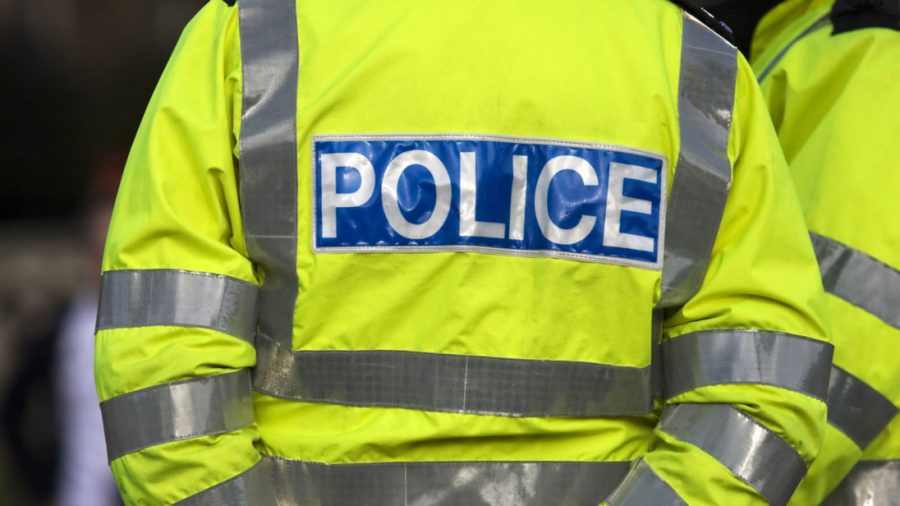
THE POLICE investigation into the serious incident which happened on Felindre Road, Pencoed, in the early hours of Saturday, February 28, is now being treated as murder.
We can confirm the 58-year-old man who was critical in hospital passed away earlier today – his family are being supported by specially trained officers at this time, and our thoughts are with them.
The Major Crime Investigation Team at South Wales Police is now leading the investigation, and the 26-year-old man arrested remains in police custody.
Detectives investigating the incident are appealing to anyone who may have been in the vicinity of Felindre Road, Pencoed, between midnight and 5am on Saturday to get in touch.
Motorists are urged to their check dashcams for any footage which may be relevant.
Detectives would like to speak to two potential witnesses – two elderly people who are believed to have walked along Felindre Road between 12.30am and 4am on Saturday.
Detective Inspector Graham Williams, from the Major Crime Investigation Team, said: “Sadly, a 58-year-old man has died in hospital following the incident on Saturday morning. Our thoughts are with his family at this time and they are being supported. I would like to reassure the local community that we have somebody in custody and are not looking for anybody else at this time. I thank everyone in the community who has helped our investigation so far, and I urge anyone with information which may be relevant to our investigation – particularly the two potential witnesses – to get in touch.”
If anybody does have information, they should contact 101 quoting reference 2600063517. Alternatively, they can submit information via the Major Incident Public – https://mipp.police.uk/operation/62SWP26C30-PO1
Crime
School lockdown lifted after telephone threat as police continue enquiries

PUPILS and staff at Maesydderwen Comprehensive School in Ystradgynlais were released safely on Monday afternoon (Mar 2) after a lockdown was implemented following a reported telephone threat.
Dyfed-Powys Police confirmed officers were called to the school earlier in the day and worked with staff to ensure the safety of everyone on site. As a precaution, the school activated its lockdown procedure while enquiries were carried out.
Police said there were no reports of injuries and that all pupils and staff were safe and secure throughout the incident.
Officers remain at the scene while “diligent enquiries” into the threat continue. At this stage, no arrests have been made, and police have confirmed there is no evidence of any ongoing risk to pupils or staff.
Reassurance patrols will take place in the coming days to support pupils, staff, parents and the wider community.
Parents and guardians will continue to receive updates directly through the school messaging app, including confirmation on whether the school will open as normal on Tuesday.
Maesydderwen Comprehensive School is located in Ystradgynlais, Powys, and is served by Dyfed-Powys Police.
-

 News6 days ago
News6 days agoLabour and Plaid criticised over £1.2m anti-racism ‘metaverse’ project
-

 Health6 days ago
Health6 days agoHealth services row escalates as MSs demand action over Withybush and Bronglais
-

 Politics6 days ago
Politics6 days agoFarage vows to strip Cardiff’s ‘City of Sanctuary’ status ahead of manifesto launch
-
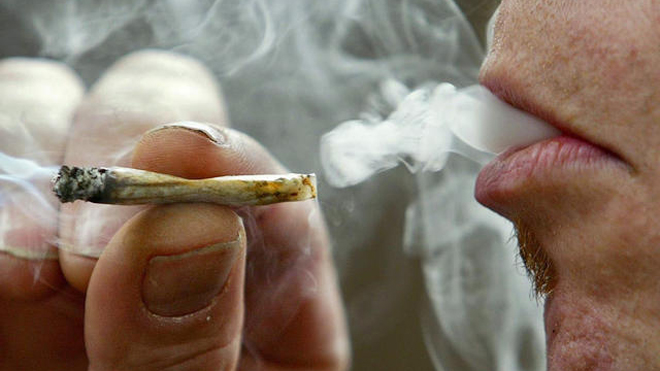
 News6 days ago
News6 days agoPlaid Cymru drug decriminalisation policy under spotlight ahead of Senedd election
-

 Business5 days ago
Business5 days agoCouncil reviewing complaints over Computer Solutions Wales as concerns continue
-

 Health5 days ago
Health5 days agoPetition calling for Withybush intervention nears 5,000 signatures
-
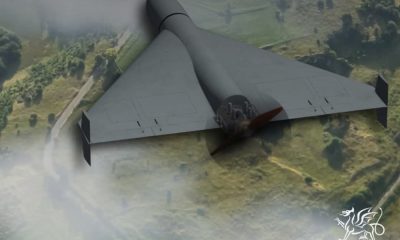
 News5 days ago
News5 days agoWelsh Government criticised after Russian-linked drone image used in defence announcement
-

 Crime5 days ago
Crime5 days agoMilford Haven pensioner admits sexually assaulting two shop workers



















